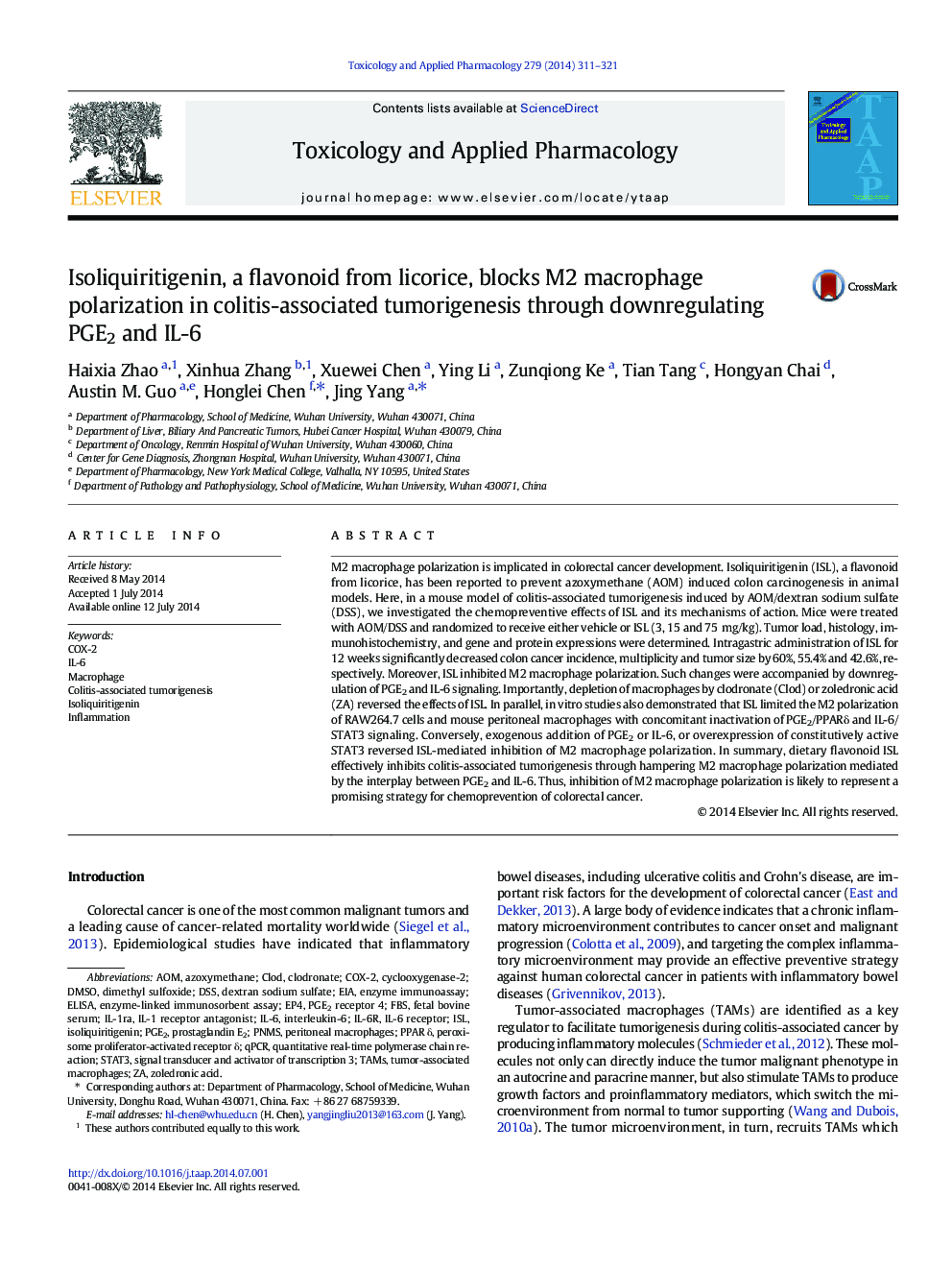| کد مقاله | کد نشریه | سال انتشار | مقاله انگلیسی | نسخه تمام متن |
|---|---|---|---|---|
| 2568550 | 1128465 | 2014 | 11 صفحه PDF | دانلود رایگان |

• Isoliquiritigenin (ISL) prevents colitis-associated tumorigenesis.
• ISL inhibits M2 macrophage polarization in vivo and in vitro.
• ISL inhibits PGE2 and IL-6 signaling in colitis-associated tumorigenesis.
• ISL may be an attractive candidate agent for chemoprevention of colorectal cancer.
M2 macrophage polarization is implicated in colorectal cancer development. Isoliquiritigenin (ISL), a flavonoid from licorice, has been reported to prevent azoxymethane (AOM) induced colon carcinogenesis in animal models. Here, in a mouse model of colitis-associated tumorigenesis induced by AOM/dextran sodium sulfate (DSS), we investigated the chemopreventive effects of ISL and its mechanisms of action. Mice were treated with AOM/DSS and randomized to receive either vehicle or ISL (3, 15 and 75 mg/kg). Tumor load, histology, immunohistochemistry, and gene and protein expressions were determined. Intragastric administration of ISL for 12 weeks significantly decreased colon cancer incidence, multiplicity and tumor size by 60%, 55.4% and 42.6%, respectively. Moreover, ISL inhibited M2 macrophage polarization. Such changes were accompanied by downregulation of PGE2 and IL-6 signaling. Importantly, depletion of macrophages by clodronate (Clod) or zoledronic acid (ZA) reversed the effects of ISL. In parallel, in vitro studies also demonstrated that ISL limited the M2 polarization of RAW264.7 cells and mouse peritoneal macrophages with concomitant inactivation of PGE2/PPARδ and IL-6/STAT3 signaling. Conversely, exogenous addition of PGE2 or IL-6, or overexpression of constitutively active STAT3 reversed ISL-mediated inhibition of M2 macrophage polarization. In summary, dietary flavonoid ISL effectively inhibits colitis-associated tumorigenesis through hampering M2 macrophage polarization mediated by the interplay between PGE2 and IL-6. Thus, inhibition of M2 macrophage polarization is likely to represent a promising strategy for chemoprevention of colorectal cancer.
Figure optionsDownload high-quality image (140 K)Download as PowerPoint slide
Journal: Toxicology and Applied Pharmacology - Volume 279, Issue 3, 15 September 2014, Pages 311–321